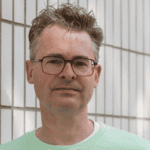-
Asked by anon-384181 to Paul, nikrobinson, Michael S, Martin M, Kirsty R, Jayne R, Clara Ferreira, Bruno Silvester L, Alexander dB on 15 Feb 2024.0
Question: will there ever be a cure for breast cancer
- Keywords:
-
Clara Ferreira answered on 15 Feb 2024:
We hope so and we keep working for it.
It is also important to keep in mind that you have different types of breast cancer – I am sure that all the scientist who study it are doing their best to make sure that they can find it.
There was also a scientist, Paul Ehrlich, who started to develop something called chemotherapy – some of the people who have breast cancer go through it and most of them finish free of cancer.
They will always be followed to make sure we can keep an eye on it.
-
Paul Laurance-Young answered on 16 Feb 2024:
Good news: There are already cures for some types breast cancer! Cancer is a very complicated topic and there are many forms of this disease, which makes treating it tough. All the treatments are not very pleasant, from surgery through to chemotherapy (nasty drugs) and radiotherapy (using high dose x-rays to kill cancer cells).
So it’s treatable, but anything we can do to catch cancer earlier means a much higher chance of surviving it. -
Jayne Roberts answered on 16 Feb 2024:
I certainly hope so. I was diagnosed with breast cancer myself around 8 yrs ago and am very grateful to all the scientists and researchers who keep on looking for better and more effective treatments. I have benefitted directly from their work. What we need though is lots of enthusiastic new scientists who will carry on the research for all types of cancer.
-
Bruno Silvester Lopes answered on 16 Feb 2024:
Im not an expert in breast cancer but I agree with what people say below. We as scientists work hard to find some solutions to all sorts of challenges!
-
Nik Robinson answered on 19 Feb 2024:
Yes and no, we will keep finding cures, but diseases will keep mutating, and some forms may be resilient.
There is a underlying question of whether we want to cure all ailments that can effect us?
This can depend very much oin when in your life you are affected by these diseases. -
Martin McCoustra answered on 19 Feb 2024:
We have cured a number of cancers… so given time we might find a cure for breast cancer.
-
Kirsty Ross answered on 19 Feb 2024:
We hope so, but many cancers are a unique combinations of mutations. This makes it difficult to treat, as you need to tailor the treatment to the underlying mutation that caused the uncontrolled growth in the first place. However, there are great strides happening in personalised medicine so there is hope that breast cancer can be treated at a much earlier stage. Doctors have to balance the risks that come with screening, as you can get both false positives (telling someone they have cancer when they don’t) and false negatives (telling someone they don’t have cancer when they do).
-
Alexander De Bruin answered on 20 Feb 2024:
I would say “yes, but…”. There are already “cures” for certain types of breast cancer, but there are so many variants that it would be hard to make a single “cure”.
-
Michael Schubert answered on 26 Feb 2024:
Not all cancers are the same. Even a cancer in a single body part, like breast cancer, can be a number of different types and needs to be treated in a number of different ways. But we already have excellent treatments for many types of breast cancer, and we are working hard on finding even more. Right now, a lot of new treatments are being designed to specifically attack cancer cells while leaving healthy cells alone, which is great because it means the cancer gets hit hard, but the person doesn’t get as many side effects.
Related Questions
did you help find the cure for covid 19?
Have you ever cured a serious illness?
Do you think we will ever cure diseases like cancer
Have you ever tried to use AI in you field of work because i believe it could help with cancer research and helping
how do you make robots that can help in the cancer research?
Sorry for the deep question, but what do you think about the conspiracy theory that if scientists were to find a cure
Is there any other diseases that you can’t recover
how would the cure for cancer be discovered if cancer keeps evolving through time
Why did you decide to work in cancer research?
will you keep researching cancer?
Latest Questions
-
How do you make new drugs
-
how many plants do you study normally?
-
what happens when a person whos sick gets a DNA while the person is sick what do you do
-
What are polysaccharides?
-
how many nuclear explosions happen in the world
-
how does your job effect your daily life ? (2 Comments)
-
why does nuclear waste glow in the dark? (1 Comment)
-
how to you deal with problems you come across when doing your research? (2 Comments)
-
If you have been emotionally invested (focusing on anxiety if you suffer with it, dementia etc) do you find it
-
what motivates you to carry out your research? (1 Comment)
Latest Comments
-
how does your job effect your daily life ? (2 comments)
-
why does nuclear waste glow in the dark? (1 comment)
-
what motivates you to carry out your research? (1 comment)
-
how to you deal with problems you come across when doing your research? (2 comments)
-
How long have you been a scientist for (2 comments)







Comments